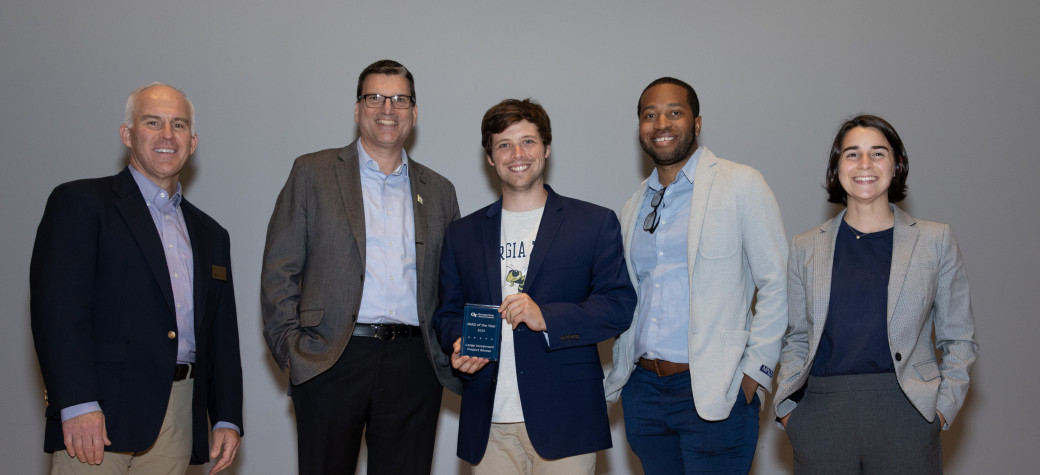
Machine learning (ML) has transformed the digital landscape with its unprecedented ability to automate complex tasks and improve decision-making processes. However, many organizations, including the U.S. Department of Defense (DoD), still rely on time-consuming methods for developing and testing machine learning models, which can create strategic vulnerabilities in today’s fast-changing environment.
The Georgia Tech Research Institute (GTRI) is addressing this challenge by developing a Machine Learning Operations (MLOps) platform that standardizes the development and testing of artificial intelligence (AI) and ML models to enhance the speed and efficiency with which these models are utilized during real-time decision-making situations.
“It’s been difficult for organizations to transition these models from a research environment and turn them into fully-functional products that can be used in real-time,” said Austin Ruth, a GTRI research engineer who is leading this project. “Our goal is to bring AI/ML to the tactical edge where it could be used during active threat situations to heighten the survivability of our warfighters.”
Rather than treating ML development in isolation, GTRI’s MLOps platform would bridge the gap between data scientists and field operations so that organizations can oversee the entire lifecycle of ML projects from development to deployment at the tactical edge.
The tactical edge refers to the immediate operational space where decisions are made and actions take place. Bringing AI and ML capabilities closer to the point of action would enhance the speed, efficiency and effectiveness of decision-making processes and contribute to more agile and adaptive responses to threats.
“We want to develop a system where fighter jets or warships don’t have to do any data transfers but could train and label the data right where they are and have the AI/ML models improve in real-time as they’re actively going up against threats,” said Ruth.
For example, a model could monitor a plane’s altitude and speed, immediately spot potential wing drag issues and alert the pilot about it. In an electronic warfare (EW) situation when facing enemy aircraft or missiles, the models could process vast amounts of incoming data to more quickly identify threats and recommend effective countermeasures in real time.
AI/ML models need to be trained and tested to ensure their effectiveness in adapting to new, unseen data. However, without having a standardized process in place, training and testing is done in a fragmented manner, which poses several risks, such as overfitting, where the model performs well on the training data but fails to generalize unseen data and makes inaccurate predictions or decisions in real-world situations, security vulnerabilities where bad actors exploit weaknesses in the models, and a general lack of robustness and inefficient resource utilization.
“Throughout this project, we noticed that training and testing are often done in a piecemeal fashion and thus aren’t repeatable,” said Jovan Munroe, a GTRI senior research engineer who is also leading this project. “Our MLOps platform makes the training and testing process more consistent and well-defined so that these models are better equipped to identify and address unknown variables in the battle space.”
This project has been supported by GTRI’s Independent Research and Development (IRAD) Program, winning an IRAD of the Year award in fiscal year 2023. In fiscal year 2024, the project received funding from a U.S. government sponsor.
Writer: Anna Akins
Photos: Sean McNeil
GTRI Communications
Georgia Tech Research Institute
Atlanta, Georgia
The Georgia Tech Research Institute (GTRI) is the nonprofit, applied research division of the Georgia Institute of Technology (Georgia Tech). Founded in 1934 as the Engineering Experiment Station, GTRI has grown to more than 2,900 employees, supporting eight laboratories in over 20 locations around the country and performing more than $940 million of problem-solving research annually for government and industry. GTRI's renowned researchers combine science, engineering, economics, policy, and technical expertise to solve complex problems for the U.S. federal government, state, and industry.



